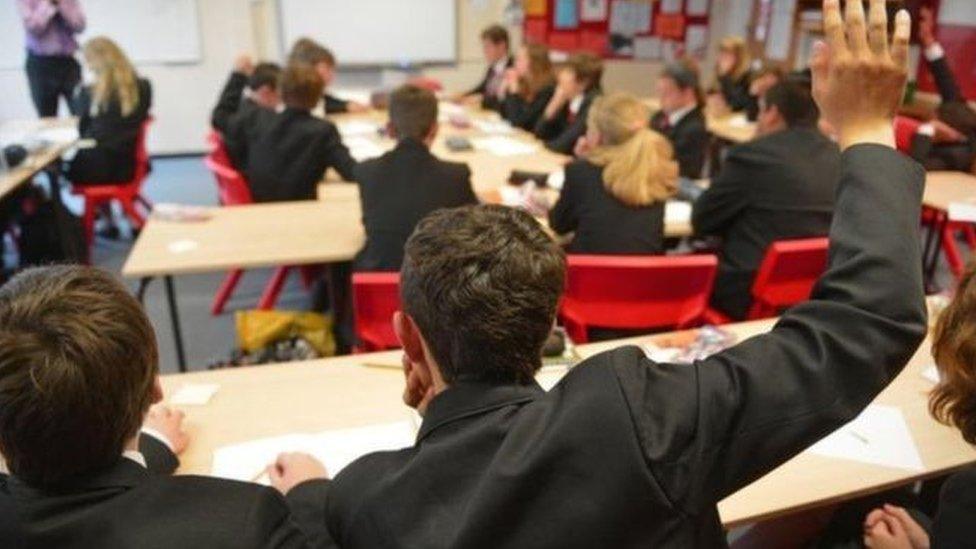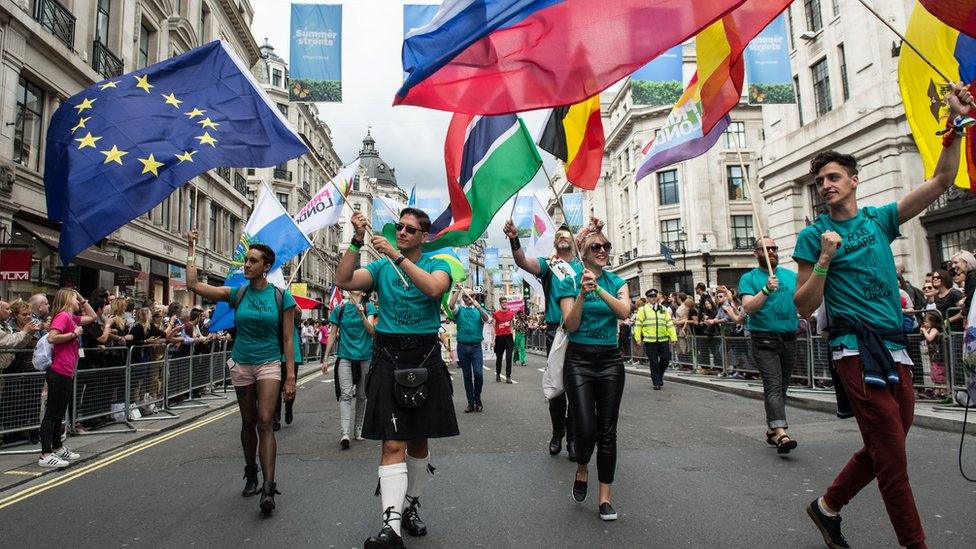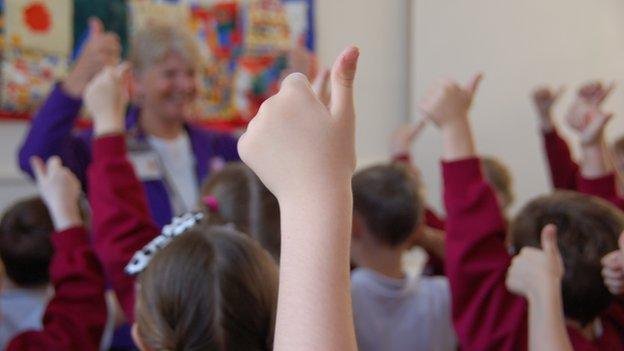One in five schools in NI cover lesbian, gay or bisexual issues
- Published

About 59% of respondent schools said they did not cover LGB issues with pupils
Just over one in five schools in Northern Ireland have said they cover lesbian, gay or bisexual (LGB) issues with pupils.
That is one of the findings of a Department of Education (DE), external survey of more than 420 schools.
Schools were asked whether they covered LGB issues in relationship and sex education (RSE) or other parts of the curriculum.
More than half - 59% - said they did not.
Just over 21% said they did cover LGB issues with pupils and 19.4% preferred not to answer the question.
Additionally, almost seven out of ten respondent schools said they were not aware of ever having any LGB pupils.
One in five respondent schools said they were aware of having LGB pupils.
The questions were posed as part of the department's school omnibus survey 2016.
A total of 424 schools were involved in the survey, of which 310 were primary schools, 91 post-primary schools and 23 special schools.
"As the actual number of schools that respond to the survey is relatively large, it is likely to be representative of all schools," the department noted.
Previous surveys have found that post-primary schools were much more likely to raise LGB issues with pupils than primary schools.
'Sensitive, non-confrontational'
However, revised guidance on RSE published by the Council for Curriculum, Examinations and Assessment (CCEA) said that primary schools should teach pupils about sexual orientation and gender identity.
"Schools should handle the issue of sexual orientation and gender identity in a sensitive, non-confrontational and reassuring way," it recommended.
"In the primary setting, schools can do this very effectively by teaching about difference in Relationships and Sexuality Education (RSE)."
"Relationships and sexuality education can help provide a positive view of sexual orientation and gender identity which, in turn, can help raise the self esteem of young people who may feel different."
The vast majority of school respondents to the survey, however, said that they never or rarely heard any derogatory references to same-sex relationships by pupils.
Almost 95% also said that staff had never been subjected to homophobic abuse.
Schools were also asked a series of separate questions on transgender issues as part of the survey.
Almost seven out of ten respondents (68%) said they did not cover transgender issues,
However, 37% indicated that they would welcome more training on addressing transphobia in the classroom.
- Published5 October 2016

- Published12 December 2014
